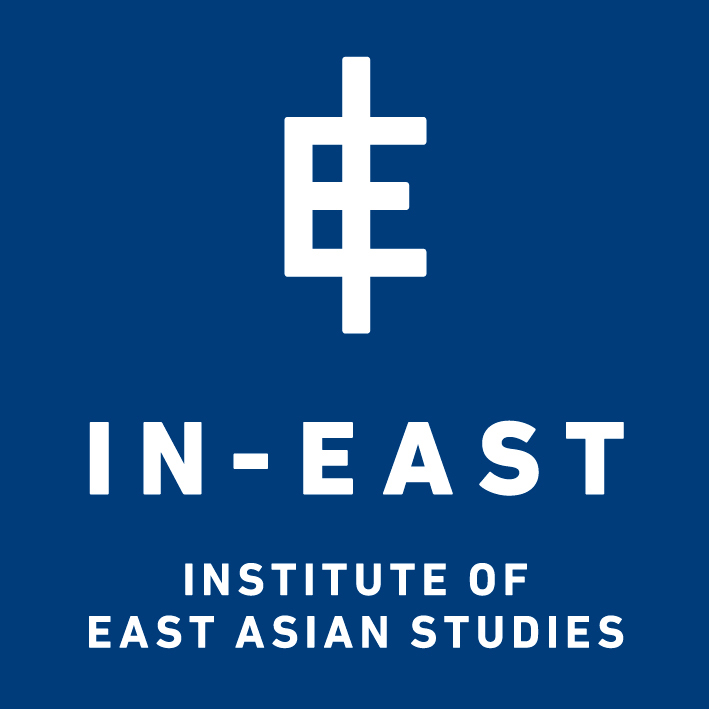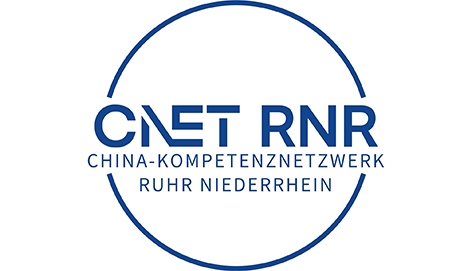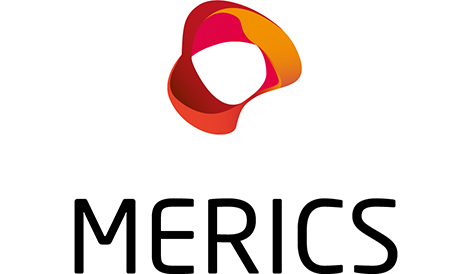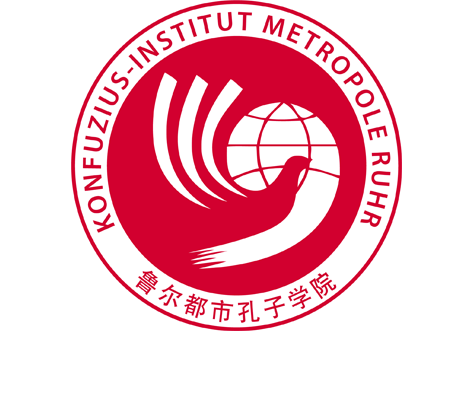MA CEAS - Students

Orientation: What You Can Find on this Website
- Timetables
- Studying at IN-EAST
- Textbooks and Preparations for first-term language courses:
– Intensive Japanese
– Intensive Chinese
– Intensive Korean - Information Regarding Possible Stays Abroad
- Information Regarding the Registration of MA Theses
- Additional Course Offers within the University Alliance Ruhr
Timetables for Summer Term 2025
Timetables for Winter Term 2024/25
Studying at IN-EAST
Important information (announcements, information regarding classes and exams, internship and job offers, etc.) will be sent to your student E-mail account. Please make sure to check it regulary and/or enable automatic forwarding to your private E-mail account. Your student E-mail is the major channel for information from our side.
Course selection is determined together with Melanie Kogler before the beginning of each semester in an individual mentoring meeting, in which you can ask all your questions about available courses, recommended selection strategies etc.
Course registration is enabled on LSF during registration periods. (Deadlines are announced on LSF and by E-mail notification each semester.)
Exam registration is enabled on HISinOne during the exam registration periods (usually during 5th and 6th week of each semester). We provide you with a step-to-step tutorial on how to register for IN-EAST modules each semester.
Textbooks for Japanese Language Course
Intensive Japanese I (MA CEAS I, 1st Semester)
We will use following textbooks:
Minna no Nihongo Shokyu I (3A) /
みんなの日本語 初級 I (スリーエーネットワーク):
- Main Text (2nd Edition) /
本冊(第二版)ISBN: 978-4-88319-603-6 - Grammar (English Version / 2nd Edition) /
翻訳・文法解説 (英語/第二版)ISBN: 978-4-88319-604-3 - Kanji Book (English Version / 2nd Edition) /
漢字(英語版/第二版) ISBN: 978-4-88319-683-8
If you want to purchase the books, you can take part in our group order. The set price is approx. 70 Euro.
Please write an E-mail to yuko.sugita@uni-due.de (Ms. Sugita) with the subject “textbooks/Japanese” and the text that you want to purchase the set of Minna no Nihongo I.
Please note: The deadline for the group order is September 25, 2024. The order is binding and cannot be cancelled.
In case you have missed the deadline for our group order and still need the textbooks, please contact yuko.sugita@uni-due.de. We usually have a few books in stock that can be purchased on a first come first served basis.
The Japanese Language Team
Preparation for Japanese Language Course
The MA CEAS students who choose to learn Japanese can already start learning two kinds of Japanese letters (hiragana & katakana) as a preparation. You are even encouraged to do so since there is not much time to learn them so quickly once the semester starts!
As mentioned above one is called hiragana and used for function words and Japanese words. The other is called katakana and used mostly for loan words.
Here are some links to help you learning:
- Table of Hiragana with reading help
- Table of Hiragana with stroke order
- Table of Katakana with reading help
- Table of Katakana with stroke order
To practice both characters, you can use these excercise sheets: Hiragana & Katakana
Have fun!
Textbooks for Intensive Chinese I
汉语教程·第一册上-第3版 (含 MP3-CD)
Hanyu Jiaocheng (Chinese Course) Textbook 1A – Third Edition [+ MP3-CD]
ISBN-10: 7-5619-4530-2 ISBN-13: 978-7-5619-4530-8
汉语教程·第一册下-第3版(含 MP3-CD)
Hanyu Jiaocheng (Chinese Course) Textbook 1B – Third Edition [+ MP3-CD]
ISBN-10: 7-5619-4547-7 ISBN-13: 978-7-5619-4547-6
The total price is about 25,00 Euro. You can find them on https://www.aolifo.de/de/ or on Amazon.
Please note that there are different editions of this series of books with the same ISBN. The one with this cover is that we will be using.
In Intensive Chinese I we will finish Textbook 1A and the first 9 chapters in Textbook 1B. Please procure the first book in time for the start of the language course.


Textbooks for Intensive Chinese II
汉语教程·第一册下-第3版(含 MP3-CD)
Hanyu Jiaocheng (Chinese Course) Textbook 1B – Third Edition [+ MP3-CD]
ISBN-10: 7-5619-4547-7 ISBN-13: 978-7-5619-4547-6
汉语教程·第二册上-第3版(含 MP3-CD)
Hanyu Jiaocheng (Chinese Course) Textbook 2A – Third Edition [+ MP3-CD]
ISBN-10: 7-5619-4638-4 ISBN-13: 978-7-5619-4638-1


Textbooks for Intensive Chinese III
汉语教程·第二册下-第3版(含 MP3-CD)
Hanyu Jiaocheng (Chinese Course) Textbook 2B – Third Edition [+ MP3-CD]
ISBN-10: 7-5619-4639-2 ISBN-13: 978-7-5619-4639-8

Preparation for Intensive Chinese I
For students who have already decided to learn Chinese and have interests to do some preview, you can start with learning Pinyin. Pinyin is the official romanization system for Standard Mandarin Chinese. It consists of three parts. The initials, the finals and the tones. Please try reading the Pinyin letters by following the CD and description of articulation on Textbook 1A.
The Mandarin Chinese Pinyin Table: https://www.archchinese.com/chinese_pinyin.html
The Chinese Radical Table – Simplified: https://www.archchinese.com/arch_chinese_radicals.html
Looking forward to seeing you in the Chinese course!
Textbooks for Intensive Korean I (MA CEAS)
We begin the course with the “University Korean” Series by Yonsei University.
Each level has four volumes, on the first Beginner‘s level these are:
- 연세 대학한국어 어휘 문법 초급Ⅰ Yonsei Academic Korean Beginning 1.
ISBN 978-89-6850-154-8 - 대학 생활을 위한 한국어 말하기 초급Ⅰ Korean Speaking for University Life. Beginning 1. ISBN 9 78-89-6850-132-6
- 대학 생활을 위한 한국어 듣기 초급Ⅰ Korean Listening for University Life. Beginning 1. ISBN 978-89-6850-133-3
- 대학 생활을 위한 한국어 쓰기 초급Ⅰ Korean Writing for University Life. Beginning 1. ISBN 978-89-6850-134-0
We will also use the grammar for beginners by Darakwon Publishing:
- Koran Grammar in Use – Beginning. ISBN: 978-89-5995-198-7
I strongly recommend this English version, there is also a German one, but the translation is worse and we will of course be completely operating in English.





You need to have all five books when the language course begins in Week 2 of the lecture period (in 2024 this begins on October 14). Possession of the first three volumes in PHYSICAL FORM is obligatory. This is not negotiable, because class activities do not work smoothly with scans on tablet or smartphone and their use obstructs everybody’s lerning. The other two (Writing and the Darakwon Grammar) will be mainly used at home.
Your lecturer organises considerably cheaper group orders from Korea for all books used during the course. The cost for the four Yonsei volumes is currently around 100 Euro, for all five volumes (including the grammar) a bit below 120 Euro. The precise cost is subject to variation in exchange rate and transport costs but it is not going to be massively more, probably less. If you want to participate in the group order, please write an E-mail with the title “Textbook Group Order” to stefan.knoob@uni-due.de.
You will then get details for a down payment. Deadline for the E-mail is
20 September 2024, but latecomers are encouraged to enquire nevertheless.
Best regards, your Korean lecturer
Required Preparation for the Language Course: Hangeul
Have you learned Korean ‘properly‘ before, even if only for a short while? By which I mean, have you ever worked through a few lessons using exclusively Korean script for reading and writing learning materials and exercises? Then you can probably already use Hangeul to some degree and move on to the task in the last paragraph of this section.
If not, then you are expected to spend a few weeks before taking up the course trying to familiarise yourself with the Korean script Hangeul. This is because students beginning the Intensive Korean Course at the UDE are expected to be able to read and write Hangeul before the course begins. This does not, of course, mean that you have to be in fluent command of Hangeul. But you should not only know the single letters but also be able to recognise most common syllable blocks and learn 50–100 everyday words, preferably for people, places and things, because verbs and adjectives are less suitable for this because of their variety of forms.
Learners generally pick up Hangeul rather quickly, but in order to be able to read and write it to some degree you should invest about 20–30 hours, a time investment that is most effective if you practice about 2 hours a day for 2–3 weeks. Here it is essential that you take care to learn the correct writing direction and order of the strokes for each letter because only then will the handwriting that you develop look natural. This is different from what you may be used to from your own language where it people may write letters in their own individual manner. A neat overview over how Hangeul should be written can be found here: https://jreidy17.files.wordpress.com/2014/07/hangul-stroke-order-handwriting-fonts.pdf.
As far as material on Hangeul and Korean pronounciation is concerned you should sooner or later also have a look at the relevant course material deposited on the course Moodle, and if you got the SNU textbooks to start with, do the many exercises there too. For learning and practicing, however, I strongly recommend https://www.koreanclass101.com/learn-hangul/. Once you have worked through this you should also scroll to the end, all the way to “9. Related Lessons” and follow the link “Go to Hangul Series” and (for lessons on pronounciation) the link “Go to Introduction Series”. These materials are free but if you wish to download anything you need to register. Again you do not need to choose a paid subscription and, once registered, you can return to the page using the URL given above.
As a final task FOR ALL OF YOU (unless, of course, you already know how to) you should apply what you have learnt to reading and writing words for foodstuffs, drinks, clothing, writing utensils and other everyday items. You can also practice this using the “First Vocabulary” lists deposited on the course Moodle, as well as the Hangeul pages in the SNU textbook. Details on Moodle enrolment can be found in the Erstsemesterbrief, or contact stefan.knoob@uni-due.de under the title “Korean Moodle 2022”.
Enjoy learning and see you for the course!
Information Regarding Possible Stays Abroad
Please find here documents and information about a possible stay abroad in East Asia (study or internship) during your last MA semester.
First, please check this general information sheet carefully. It also contains the deadlines.
If you are sure you would like to apply for a stay abroad please use this application form.
If you have been invited to and attended the information meeting but have not yet submitted your statement of commitment, please print it out here, fill out and sign it and submit it a.s.a.p. to Ms. Melanie Kogler.
Data Protection: Your details are covered by the full set of data protection laws that are valid at the time of writing. https://www.uni-due.de/en/privacy-policy.php
Information Regarding the Registration of MA Theses
Please read through this information sheet on MA thesis registration and check for any updates or changes to the procedures shortly before registering/submitting your thesis. Sudden changes may be announced by email from the examination office or IN-EAST or on the examination office website, while this information sheet may be updated a little later.
Make sure to talk to Ms. Kogler before registering your thesis.
Additional Course Offers within the University Alliance Ruhr
Within the framework of the UA Ruhr (University Alliance Ruhr) – a cooperation between Ruhr University Bochum, TU Dortmund University and University of Duisburg-Essen – students have the opportunity to take courses at the other institutions. If you are interested, please check the links below. Please be sure to discuss the details with Ms. Kogler beforehand – especially if you want to have courses count towards your MA degree, the amount of CPs and the overall fit of the course content need to be checked and approved. If you simply want to take courses additionally out of interest, please make sure they do not interfere with your regular curriculum in MA CEAS and MEAS.
To register for courses and exams, please use the application form (German) / English) and follow the procedure described on the last page of the application form.
Open MA Courses in East Asian Studies at Ruhr University Bochum: https://www.area-ruhr.de/research/ma-courses/
General Courses in English in the University Alliance Ruhr (BA- and MA-level courses): https://www.uni-due.de/gesellschaftswissenschaften/internationales/courses_english.php
Downloads
- MA CEAS Examination Regulations, including a module description (in German)
- Module Handbook (English version, updated 2021. For an impression of the modules currently taught, check the LSF – switch to English, choose the term you want to look at, choose “Courses”, Click “Course Overview”, select “Ostasienwissenschaften/East Asian Studies” and then choose the specific study program)
- Module Handbook (German version, updated 2021)
- Information Literacy Training: The information literacy training is mandatory for all MA CEAS students and external MEAS students starting their studies in winter term 2020/21 or later. Contact Melanie Kogler if you have any questions or if you are in a higher semester and would like to join voluntarily.
- Study Program Stucture MA CEAS
- Guidelines for Writing Assignments and MA Theses (NEW version, valid as of 01.04.2021 – start of summer term 2021)
- Information about Submitting a Medical Certificate/Attestation (NEW version)
- Regulations regarding Term Papers
Links
Contact
If you need further information or have open questions, please contact the Coordination Unit at
maceas@in-east.de
Ms. Melanie KOGLER, M.A., Coordinator
Campus Duisburg
Office LE 602 in LE building
Please contact me by E-mail to set up an individual appointment.









